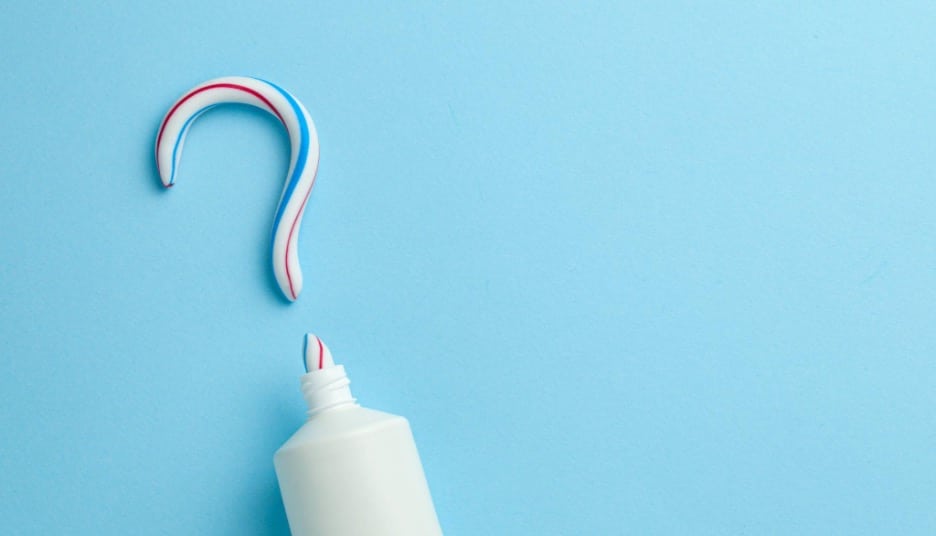How Often Do You Need To Change Your Toothpaste?
1 Dec 2021

Toothpaste is an essential part of every bathroom and of personal hygiene. The appeal of a smile, and the state of health of the oral cavity depends on toothpaste amongst other factors. Manufacturers are ready to offer the consumer a huge selection of toothpaste, both conventional and specialized, whose action aims to provide a specific effect: whitening, enamel strengthening, reducing gum bleeding, enhanced aromatizing effect and choosing the right option for you isn’t as easy as it used to be.
What Are the Types of Toothpaste?

To correctly answer the question: is it necessary to change the toothpaste, it is worth considering the main types of existing options:
- The main focus of this type of toothpaste is breath freshening and the removal of the smallest food debris. Such pastes are most suitable for people with no problems in terms of dentistry and children.
- Treatment-and-prophylactic. The main focus of this line of pastes is the prevention of dental diseases, achieved through specialized components in the composition.
- The composition of specialized pastes includes medicinal components that provide an auxiliary effect as part of a complex treatment
An in-depth classification:
-
- Pastes with anti-caries effect. The composition of such pastes is most often enriched with fluorine and calcium, which helps to strengthen the enamel. Such pastes cannot cure existing caries, but they are good prevention;
- Pastes with anti-periodontal effect. The composition includes a set of herbs that have an anti-inflammatory effect and reduce bleeding of the gums;
- Whitening pastes. These pastes contain abrasive particles and peroxide. Soda is most often used as an abrasive. Such pastes cannot give a total whitening effect, but they can lighten the enamel by 1-1.5 tones.
It is also customary to distinguish anti-periodontal pastes with natural herbs, bleaching with the content of small abrasive particles (usually soda plays this role) and many others. Of course, one should not count on the fact that with the help of such a paste, it will be possible to cure all kinds of caries, but it is possible to prevent its appearance in the future.
Why Do You Need To Change Your Toothpaste Often?
Any microorganisms, including those in the oral cavity, are capable of adaptation. In this regard, the effectiveness of toothpaste, especially those with a therapeutic and prophylactic effect, is significantly reduced with prolonged use. Simply put, the medicinal components cease to affect microorganisms due to their addiction to them. Other reasons to change you toothpaste include:
- Whitening pastes contain abrasive particles that, with prolonged use, can damage the enamel and, as a result, increase the sensitivity of the teeth to changes in temperature and the effects of sweets.
- In some cases, oral problems are complex, while toothpastes are not always multicomponent and multipurpose. In this regard, in the presence of, for example, bleeding gums and a simultaneous tendency to develop caries, it is advisable to combine two types of toothpaste, using them alternately in the morning and the evening. A good solution, in this case, would be a combination of herbal toothpaste and a toothpaste enriched with fluoride and calcium.
The duration of the use of toothpaste, for the most part, is directly related to its target orientation.
How Long Should a Particular Toothpaste Be Used?
- Whitening toothpastes are not recommended for long periods. The frequency of such processing should not exceed 2-3 times during the week.
- Treatment-and-prophylactic toothpastes are usually used combining two types according to the principle: morning-evening. The duration of the use of such pastes is from 3 to 4 weeks, depending on the case’s complexity.
- Hygienic toothpastes. In general, dentists recommend changing toothpastes every 2-3 months. In this case, its action is most effective.
Why Periodically Change your Toothpaste?
Many microorganisms accumulate in the mouth of every person. With regular and good oral hygiene, bacteria and germs cannot harm the body and teeth.
A good toothpaste copes well with plaque, freshens breath and strengthens the enamel, making it more resistant to external negative influences. After some time though, bacteria in the mouth gradually begin to grow resistant and if they are not contained, pose health problems to their host. Periodically changing the toothpaste will prevent the growth of such bacteria.
Unwanted Ingredients in Toothpaste
There are also components, the negative effect of which on the human body is beyond doubt:
- Parabens – They act as preservatives. Scientists have found that with constant use of a paste with parabens, the substance accumulates in the body, leading to cancer development. Moreover, they are strong allergens.
- Foaming agents (sodium lauryl and laureth sulfate). This ingredient really helps to remove plaque better, but it also has a carcinogenic effect if you constantly brush your teeth with toothpastes containing these substances.
- Water softeners (Sodium and disodium EDTA) are another group of carcinogens that are especially dangerous if they enter the stomach with water during hygiene.
Such substances are found in mass-market toothpastes. Therefore, dentists urge patients to buy pastes from a pharmacy or professional dental stores
Criteria for Choosing a Toothpaste
We can become so overwhelmed that we grab the closest alternative to the brands we’re familiar with. However, selecting a new toothpaste should not be a hasty decision because it can have a significant impact on your oral health.
The main parameters for choosing oral hygiene products:
- safe, effective composition;
- good deodorant performance;
- the absence of components that cause allergies or irritation of the mucous membranes;
- long-term antibacterial effect;
- organic consistency;
- pleasant taste;
- tailored to individual needs (prevention of existing gum and dental problems.
At Wilmington Orthodontics your oral health comes first. Dr. Perlitsh and her team use state of the art technology to offer the best comprehensive orthodontic care. You can reach out for a booking on (978) 658-3310 or visit the office at 25 Lowell Street Wilmington, MA 01887.
